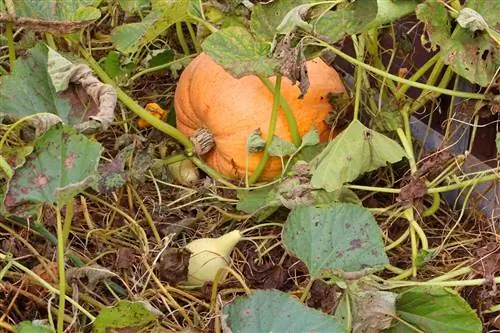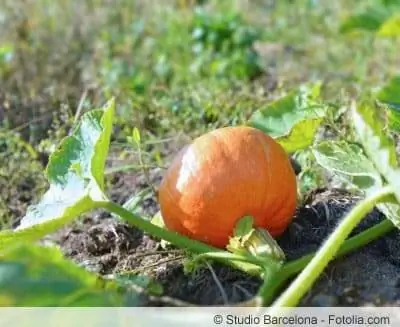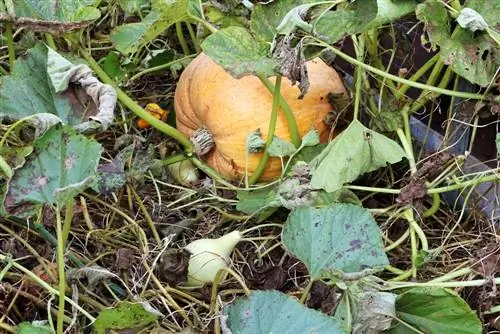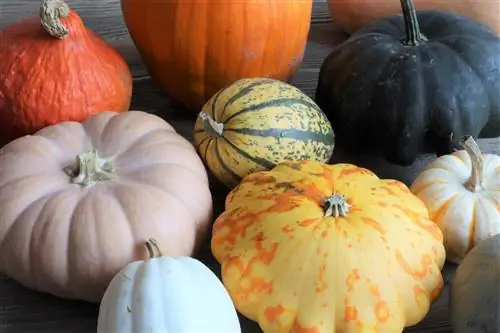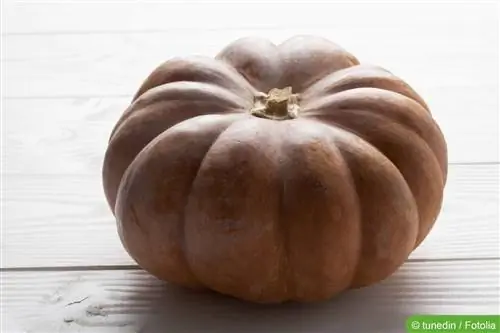- Author admin caroline@plants-knowledge.com.
- Public 2023-12-17 03:39.
- Last modified 2025-01-24 12:45.
With the right neighbors, you can ensure he althy pumpkin plants and a productive harvest. So that you can create a mixed culture productively, this article introduces you to 15 good neighbors.
5 good vegetable neighbors
Amarant (Amaranthus caudatus)
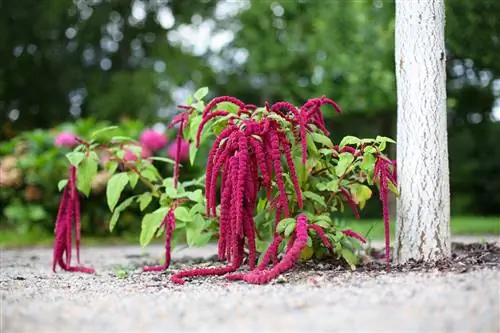
- Effects: Protection against pests, possible climbing aid, protects soil from drying out
- Growth height: up to 150 cm
- Space required: 30 cm
- Light requirements: full sun to partial shade
- Location and soil: sheltered from the wind, deep, loose, nutrient-rich, permeable
- Harvest time: leaves entire season (leafy vegetables), September to mid-October (seeds)
- Middle eaters
French bean (Phaseolus vulgaris)
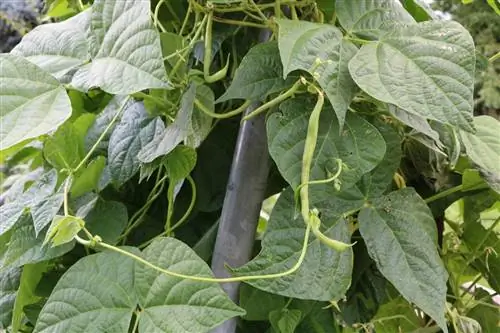
- Effect: improves soil quality, supplies nitrogen
- Growth height: pole bean 200 to 400 cm, bush bean up to 60 cm
- Space requirement: 20 cm
- Light requirement: sunny
- Location and soil: warm, sheltered from the wind, humus, deep, loose
- Harvest time: about 10 weeks after planting
- Low to medium feeders
Garlic (Allium sativum)
- Effect: protects against pests
- Growth height: 50 cm to 100 cm
- Space requirement: 15 cm to 20 cm
- Light requirement: sunny
- Location and soil: warm, sheltered from the wind, loose, humus-rich, permeable
- Harvest time: from July
- Middle eaters
Maize (Zea mays)
- Effect: suitable as a climbing aid, improves soil condition
- Growth height: 60 cm to 600 cm (depending on the variety), usually 150 cm to 250 cm
- Space required: 30 cm
- Light requirement: sunny
- Location and soil: deep, loose, nutrient-rich, permeable
- Harvest time: August to mid-October
- Heavy eaters
Radishes (Raphanus)
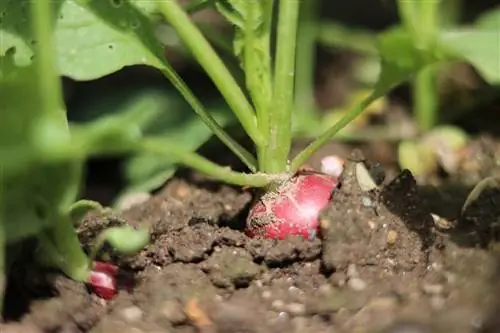
- Effect: protects against pests and weeds
- Growth height: depending on species
- Space requirement: 20 cm to 25 cm
- Light requirement: sunny
- Location and soil: moist, deep, loose, humus, permeable, clayey
- Harvest time: 8 to 15 weeks after sowing (depending on species)
- Low or medium feeder (depending on species)
- Radishes are also included
Note:
Pumpkins, along with corn and kidney beans, are part of the Mayan Milpa agricultural system. Known as the “Three Sisters”, the species together have an ideal effect on each other’s growth.
5 ideal herb neighbors
Lavender (Lavandula)
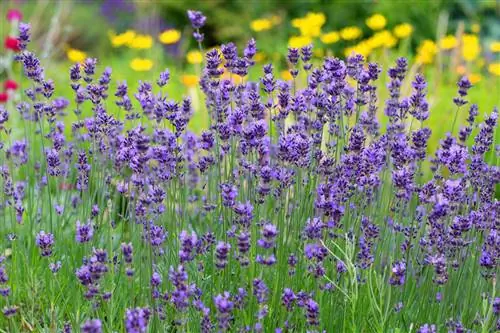
- Effect: attracts pollinator insects
- Growth height: 30 cm to 100 cm
- Space required: 30 cm
- Light requirement: sunny
- Location and soil: warm, nutrient-poor, permeable
- Harvest time: July to August
- Weak eater
Marjoram (Origanum majorana)
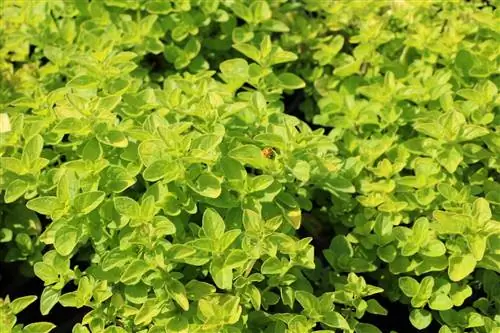
- Effect: improves pumpkin flavor,
- Growth height: 50 cm to 100 cm
- Space requirement: 20 cm to 30 cm
- Light requirement: full sun
- Location and soil: humus, loose, nutrient-rich, permeable
- Harvest time: summer to autumn
- Weak eater
Oregano (Origanum vulgare)
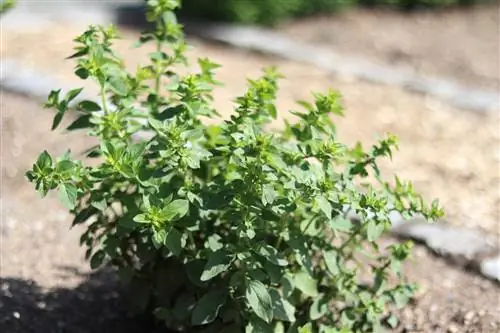
- Effect: improves he alth, protects against pests
- Growth height: 15 cm to 50 cm
- Space requirement: 20 cm to 30 cm
- Light requirements: sunny to partially shaded
- Location and soil: warm, calcareous, sandy, nutrient-poor, permeable
- Harvest time: May to the end of the season
- Weak eater
Peppermint (Mentha piperita)
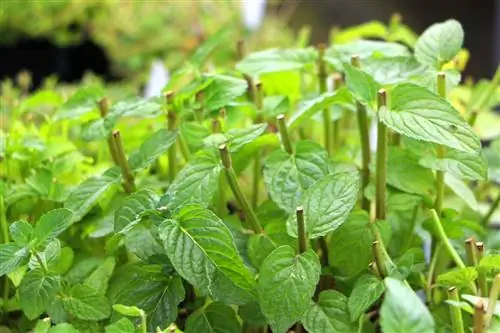
- Effect: protects against pests
- Growth height: up to 100 cm
- Space required: 30 cm
- Light requirements: light shade to partial shade
- Location and soil: humus, loamy, sandy, nutrient-rich, permeable, fresh and moist
- Harvest time: mid-May to early October
- Middle eaters
Hyssop (Hyssopus)
- Effect: attracts pollinator insects and beneficial insects, protects against pests
- Growth height: 20 cm to 80 cm
- Space requirement: 30 cm to 40 cm
- Light requirement: sunny
- Location and soil: sheltered from the wind, permeable, calcareous, dry
- Harvest time: June to August
- Middle eaters
Tip:
Tansy (Tanacetum vulgare) also makes a good neighbor. The worm herb has an effective effect on numerous lice and even repels mosquitoes and other biting insects.
5 decorative flower neighbors
Chamomiles (Matricaria)
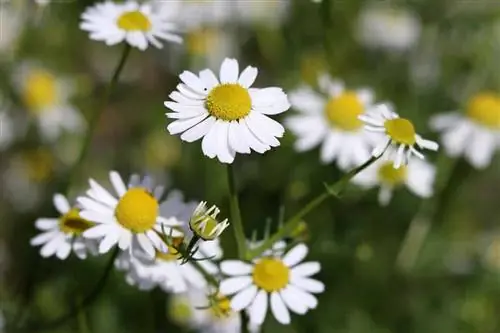
- Effect: improves soil quality, absorbs lime from the soil, attracts pollinator insects
- Growth height: 50 cm to 60 cm
- Space requirement: 15 cm to 30 cm
- Light requirements: sunny to partially shaded
- Location and soil: deep, dry, undemanding
- Flowers can be used (e.g. for tea)
- Weak eater
Nasturtiums (Tropaeolum)
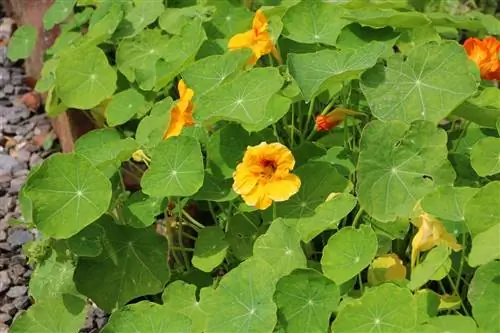
- Effect: protects against pests, attracts pollinator insects
- Growth height: 20 cm (without tendrils), up to 300 cm (tendrils)
- Space requirement: depending on growth habit
- Light requirements: sunny (preferred), tolerates shade
- Location and soil: sheltered, loamy, sandy, moderately humus
- Leaves, flowers and seeds usable and edible
- Weak eater
Marigold (Calendula officinalis)
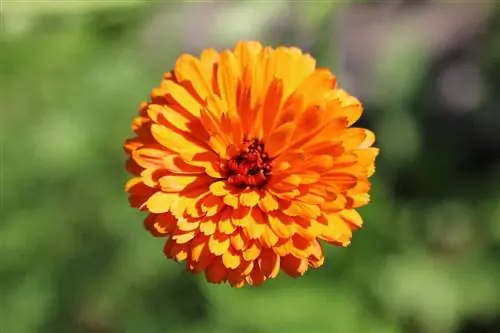
- Effect: promotes growth, improves pumpkin taste
- Growth height: 30 cm to 80 cm
- Space requirement: 15 cm
- Light requirement: sunny
- Location and soil: moderately moist, nutrient-rich, lime-rich, sandy, loose
- Harvest time: leaves entire season (leafy vegetables), June to mid-October (flowers)
- Weak eater
Sunflower (Helianthus annuus)
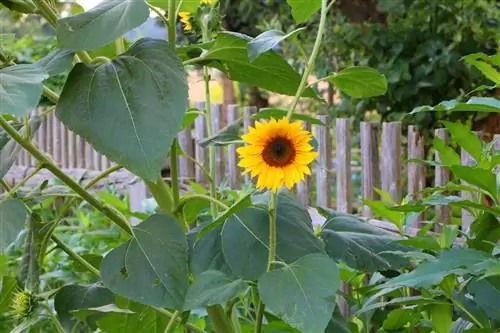
- Effect: climbing aid, attracts pollinator insects
- Growth height: 150 cm to 300 cm
- Space requirement: 50 cm
- Light requirement: full sun
- Location and soil: nutrient-rich, moderately heavy, moist, nutrient-rich
- Harvest time: from mid-September, about a week after the flowers wilt
- Heavy eaters
Student flower (Tagetes)
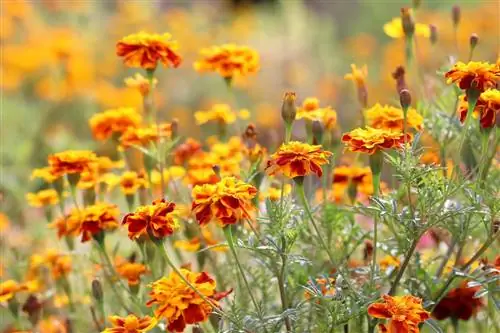
- Effect: protects against pests and parasites, improves soil quality, protects against weeds
- Growth height: 20 cm to 110 cm (depending on species)
- Space requirement: 15 cm to 30 cm (depending on type)
- Light requirements: sunny to partially shaded
- Location and soil: sandy, loose, loamy, humus
- Harvest time: leaves entire season (leafy vegetables), flowers (June to mid-October), seeds by flowering time
- Weak eater
Note:
Bad pumpkin neighbors include dill, cucumbers, zucchinis and potatoes. They have a negative effect on the root growth and vitality of the pumpkin plants.

